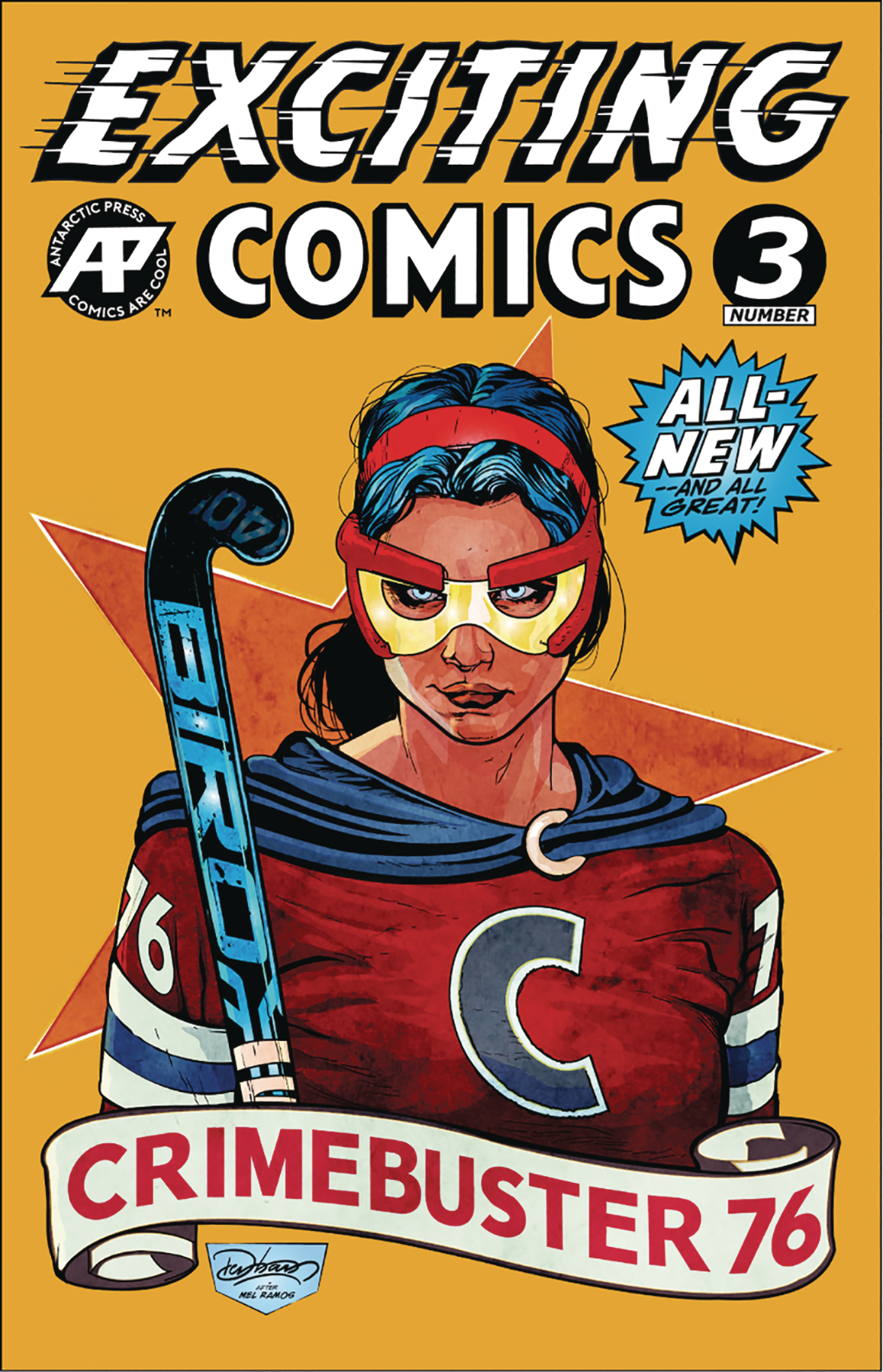How do you define "superpowers"? That's a good question. If you really think about it, guys like Green Lantern and Iron Man don't have any superpowers. What they have is high-tech weaponry that just makes it
seem like they have superpowers. Take away those weapons and they're powerless.
And of course, even after World War II, while superheroes continued to dwindle in popularity, they
never really went away
completely. DC characters like Superman, Batman, Wonder Woman, Aquaman, and Green Arrow had an unbroken string of published adventures from their beginnings in the Golden Age through the beginning of the Silver Age. While no other publishers could claim that kind of regularity, superheroes continued to pop up after WWII and before the Silver Age all over the place -- mostly minor characters like Captain Flash, the Black Cobra, or Nature Boy. It's only when we look at them statistically, in relation to the vastly increased number of titles published after WWII (when paper rationing ceased to be a concern, most publishers took advantage and expanded their number of titles in order to compete for rack space) that you can see they became a far less significant part of the overall comic marketplace. But even during the war, when the anthology comic book was the rule rather than the exception, there were a range of anthologies -- some
mostly superheroes, some
partly superheroes, and some
no superheroes at all. For example, Fiction House, a major publisher for the entire decade of the 1940s, never produced a significant superhero character at all. After the war, comics became increasingly specialized in genre, and there were fewer anthology titles with each drop in page count to maintain the 10-cent cover price.
Other media was important in helping a character maintain popularity in the comic book marketplace, with Superman having a long-running radio series and a newspaper comic strip which continued to run long after most other superheroes had ceased publication in the wake of WWII. Similarly, having a long-running radio series and newspaper comic strip was important to the longevity of Archie Andrews, helping to familiarize the non-comic book reading public with the character. Even during the lowest point for superheroes, the 1950s, Superman was the first comic book character to have his own television series -- that was enormously important to the character's longevity and eventually led to spinoff series for Jimmy Olsen and Lois Lane. When Martin Goodman decided to try reviving Captain America, the Human Torch, and Sub-Mariner in 1953, it was because of
The Adventures of Superman TV series. Although they sold poorly and were quickly cancelled, the Sub-Mariner's revived title managed to last a year longer than the others -- that's because a TV producer expressed interest in the character, although ultimately the series never made it to a pilot. Think about what an incredible difference it would have made to the history of comic books (especially superhero comic books) if instead of
The Adventures of Superman, there had been an
Adventures of Captain Marvel TV series. In all likelihood, a TV show would have buoyed the popularity and sales of the comic books, Fawcett would have had the incentive to never throw in the towel and settle out-of-court in their legal battle against DC, and there would never have been a British MARVELMAN comic... the mind boggles.
Before this gets TOO off-topic, let me just mention that Crimebuster is making a comeback, appearing in
Exciting Comics #3 from Antarctic Press. Not sure what "Crimebuster 76" indicates, but possibly this is a revival of the character set in 1976? Nice tip of the hat to Charlie Biro with the logo.





